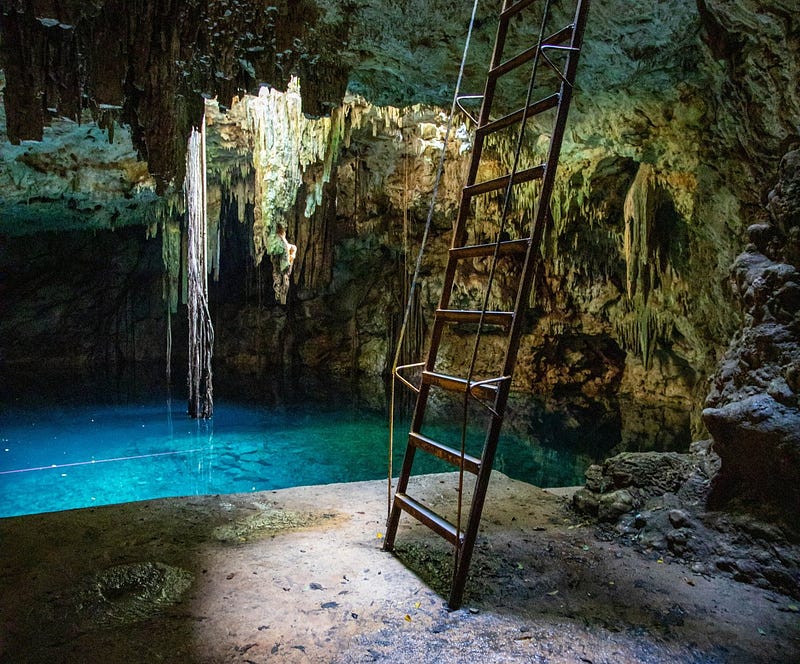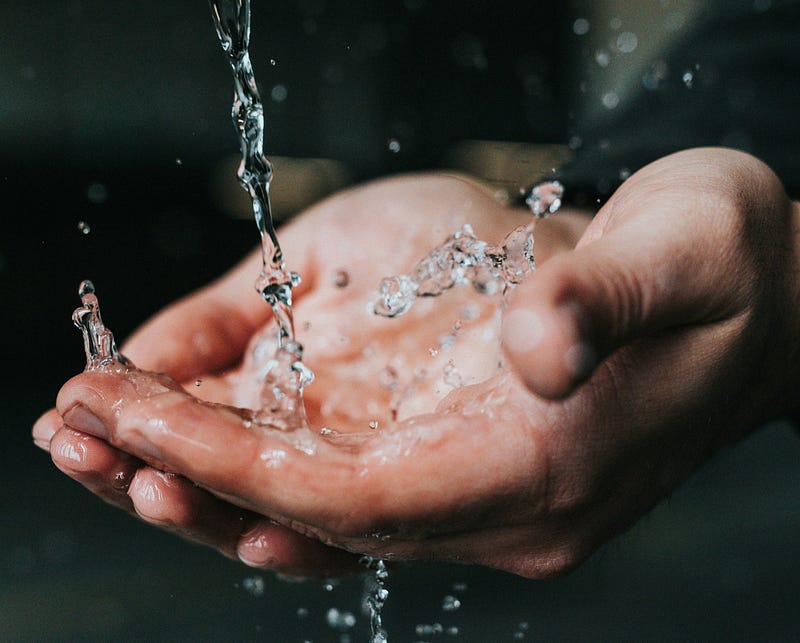Exploring the Unique Microbial Communities of the Yucatán Aquifer
Written on
Chapter 1: Introduction to the Yucatán Aquifer System
A collaborative team from Northwestern University and skilled underwater cave divers has successfully mapped the diverse microbial populations residing within a vast submerged aquifer system located in the Yucatán Peninsula. Their findings indicate that this system possesses a distinct microbiome, organized into defined neighborhoods, which contrasts sharply with the adjacent oceanic environment.

What is the Yucatán Aquifer System?
The Yucatán Peninsula boasts the largest karst aquifer on the planet, characterized by an intricate network of underwater tunnels. This extensive system spans approximately 165,000 square kilometers across Mexico, Guatemala, and Belize. Over time, various tectonic activities have reshaped this aquifer. Additionally, the region is known for the Chicxulub crater, believed to be formed by the asteroid responsible for the extinction of the dinosaurs 66 million years ago, making it a significant site for both geological and biological research.
Chapter 2: The Diversity of Microbial Communities
The extensive underwater caverns of the Yucatán aquifer are home to a remarkably diverse range of ecosystems dependent on groundwater. Previous studies were limited to analyzing the microbiome through water and microbial samples taken from cave entrances and accessible sinkholes.
After extensive sampling within the dark, submerged passages of the aquifer, the research team uncovered a unique assortment of microorganisms. Although a variety of microbes were identified, they predominantly occupied specific neighborhoods, except for one bacterial family. The Comamonadaceae family appeared in two-thirds of all microbial groups, indicating its potential significance in the overall ecosystem.
> "The microbial communities create distinct niches. Each area has a unique set of organisms that seem to shift based on location. However, across the entire dataset, there's a core group of species performing essential roles in these ecosystems." — Magdalena R. Osburn, Lead Author, Northwestern University.
This Comamonadaceae family appears to collaborate with partners in various regions of the aquifer, suggesting a probable mutualistic relationship. Osburn posits that these bacteria might engage in a mutual metabolism with their partners, likely through shared nutrients.
Researchers also noted that, despite drawing water from the Gulf of Mexico, the aquifer hosts a microbiome distinctly different from that of the nearby sea, with variations observed throughout the cave system, particularly between shallow and deeper waters.
Video Description: This video showcases the discovery of manatees in the pristine yet vulnerable habitats of the Yucatán Peninsula by cave divers, shedding light on the ecological importance of these underwater environments.
Chapter 3: Significance of Microbial Life in the Yucatán
The Yucatán aquifer serves as a crucial drinking water source, making the study of its microbial communities essential for ensuring clean water access for millions. As one of the largest aquifers globally, it represents a significant reservoir of freshwater, accounting for about 96% of the world's available liquid freshwater.

Unfortunately, many groundwater sources are overexploited and contaminated, including the Yucatán aquifer. Household waste, often untreated, is a significant pollution source, as many local homes lack gray water treatment systems. Consequently, detergents, oils, and dirt infiltrate the ground, leading to contamination of local wells, raising concerns about the aquifer's future viability.
While bioremediation concepts have not yet been applied in the Yucatán aquifer, some biologists propose it as a solution for groundwater pollution in other regions. Certain microbes can degrade oils and organic matter found in polluted waters and soils. Although some bacteria are associated with water contamination, specific strains can be engineered to avoid contaminating water while effectively removing pollutants. Investigating the unique microbiome of the Yucatán aquifer may enable environmental scientists to explore the potential use of these specialized microbes for remediation efforts in the area.